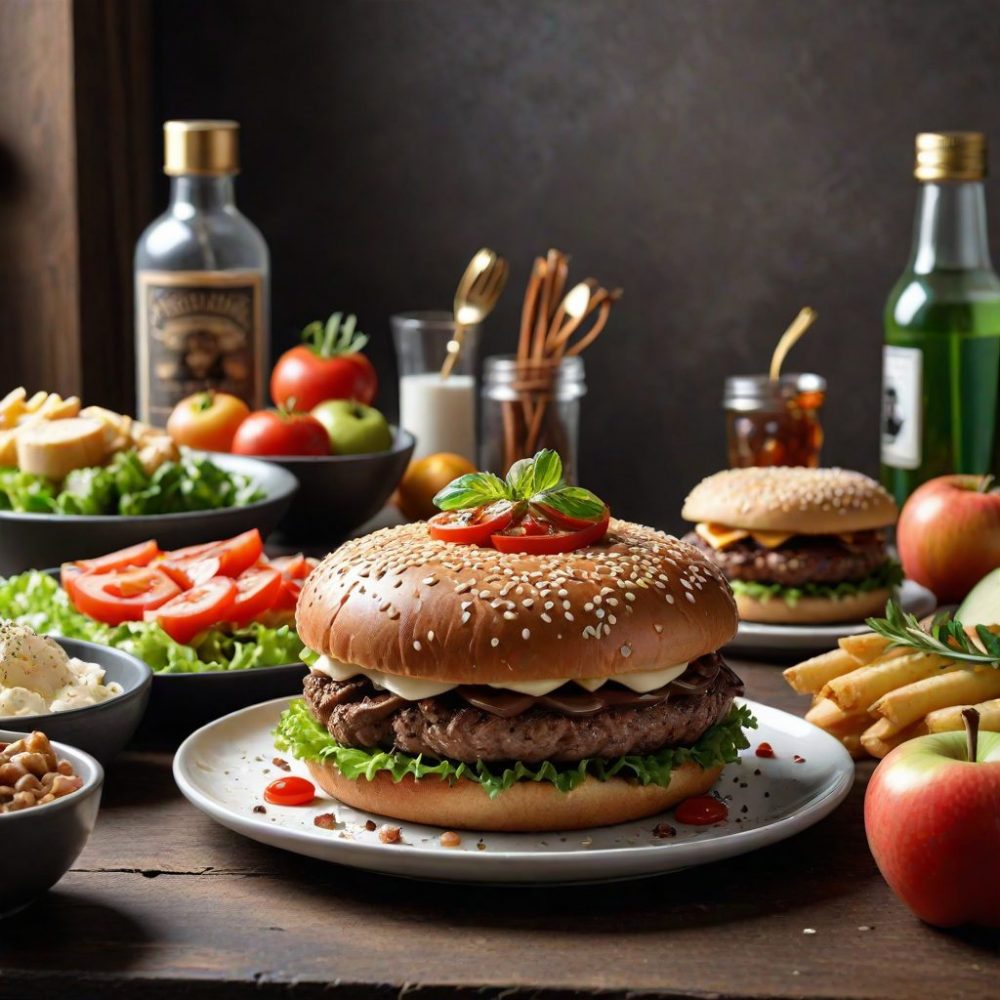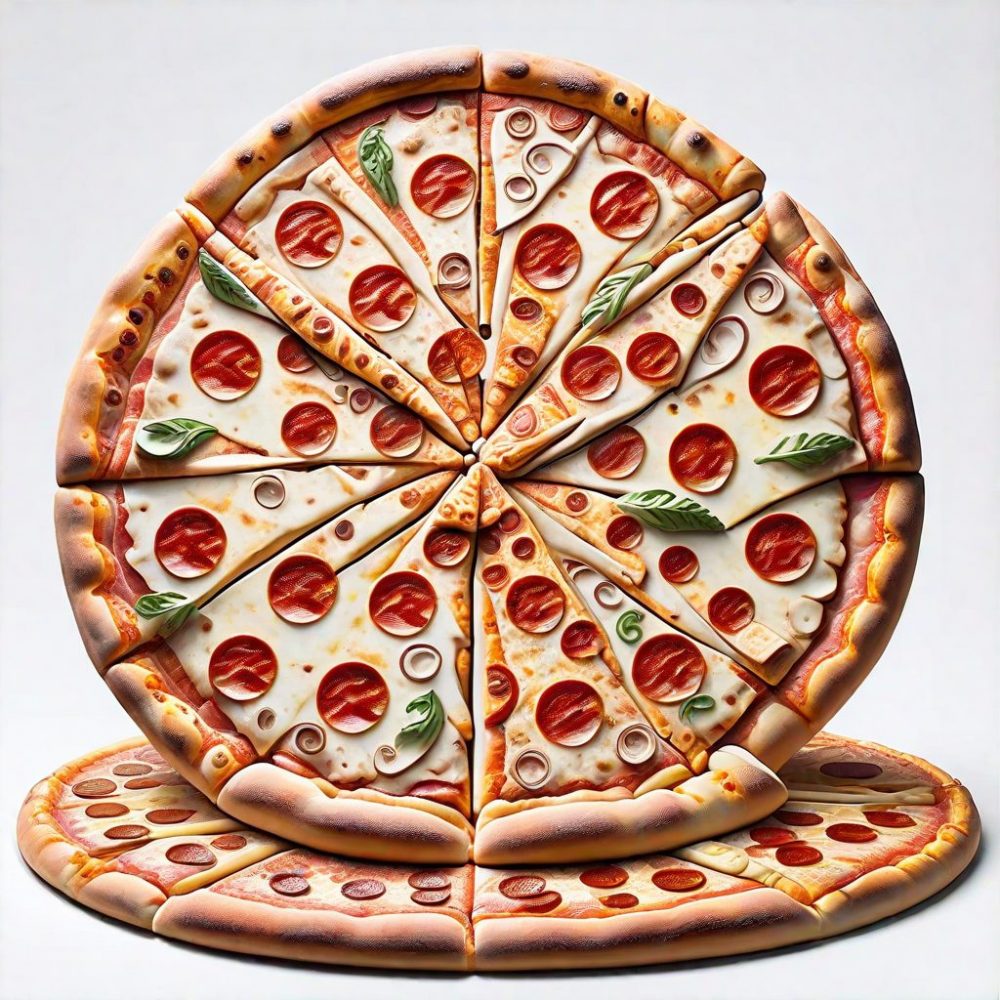
Counting Calories vs. Listening to Your Body
Recommended for Middle Grades
The Crappy Calorie Cult

The Crappy Calorie Cult
Imagine it: 1918. The world’s still hungover from the First World War, the rumble of the Industrial Revolution is shaking things up, and medicine is finally starting to shed its snake-oil salesman image. But amidst all this, a new kind of craze grips America.
Forget fancy gadgets or revolutionary inventions – this one’s about how you see yourself, your body, and that plate of food in front of you. It’s the dawn of the calorie cult, and its high priestess is a dame named Dr. Lulu Hunt Peters.
Now, Dr. Peters wasn’t your average doc. She was a trailblazer, one of the first women in America to snag a medical degree. Talk about defying expectations. This New England firecracker ditched societal norms, headed out west to California, and became a doctor by 1909.
Gritty and hungry for knowledge, that’s for sure. But it wasn’t her medical chops that made her a household name. It was her epic weight loss and subsequent obsession with a little unit of measurement most folks had never heard of: the calorie.
Lulu’s Pound Shedding Pilgrimage
Let us tell you, Dr. Peters’ transformation was a sight to behold. We’re talking a woman who once tipped the scales at a hefty 220 pounds, a weight she loathed. But armed with sheer willpower and a calculator permanently glued to her hand, she managed to shed a whopping 70 pounds. This feat became her personal Everest, the thing she was most proud of.
See, her calorie obsession began during med school, where she learned about this obscure unit used mostly by chemists. But Lulu saw its potential. If a calorie measured the energy potential of food, why couldn’t it be used to control weight? Talk about a lightbulb moment.
Her best-selling book, “Diet and Health with Key to the Calories,” became her pulpit. She wrote with the fervor of a televangelist, addressing readers like they were sitting across the table, coffee in hand. “Verily only food maketh fat!” she’d proclaim, promising salvation from the dreaded obesity monster through the holy ritual of calorie counting.
Her message was simple: weight loss was just a math equation – burn more calories than you consume, and voila! A trimmer you.
Calorie Counting Takes Over

Calorie Counting Takes Over
Peters’ book became an instant smash hit. The first diet bestseller, it clung to the top spot for a cool five years. Why? Because America was captivated by her ideas. She was a marketing whiz, serializing her book in newspapers to build anticipation. Her folksy, down-to-earth tone and self-deprecating humor made her relatable, and her own success story inspired countless others to jump on the calorie-counting bandwagon.
Her influence wasn’t limited to books. Peters wrote a newspaper column that was syndicated nationwide, and she crisscrossed the country spreading the gospel of calorie counting like a rockstar on tour. She crafted a persona that resonated with the American public, blending scientific authority with a charismatic, almost cult-leader vibe. She even coined terms like “Petersizing,” essentially branding her methods and making them part of everyday conversation.
Fast forward a hundred years, and the legacy of calorie counting lives on. The Centers for Disease Control and Prevention reports a not-so-shocking truth: over 40% of American adults are obese, and Type 2 diabetes is on the rise. Despite the widespread adoption of calorie counting and the never-ending stream of fad diets popping up after Peters’ time, the battle with weight rages on.
Diet Fads and Cultural Shifts: A Food Tour Gone Wrong?
Alright, folks, buckle up. We’re diving headfirst into the bizarre world of American diet crazes. It’s a landscape littered with the wreckage of fads – some downright wacky, some just plain depressing. But hey, gotta give them credit for creativity, right?
Michelle Stacey, a food historian who’s seen it all, says these diet crazes are a uniquely American obsession. It’s all about control, folks. Counting calories, following rigid rules – it’s like we’re trying to micromanage our bodies into submission. This whole “numbers game” thing with food? Started way back in the 19th century, believe it or not.
One of the early contenders in this food fight was Fletcherizing. Invented by some dude named Horace Fletcher (figures, right?), it involved chewing each bite of food hundreds of times. Basically, turn every meal into a marathon. Sounds delightful, doesn’t it? But hey, to each their own. It just goes to show how far some folks are willing to go to achieve that “beach bod.”
The Calorie Cult: How a Scientific Obscurity Became Our Food Obsession

The Calorie Cult: How a Scientific Obscurity Became Our Food Obsession
Then came the calorie. Originally just a unit for chemists to geek out over, Dr. Lulu Hunt Peters turned it into the star of the American diet show. Her book, with a title longer than a CVS receipt, transformed the calorie from a scientific oddity into a household word. And why? Because it offered a simple way to “control” your weight. Count calories in, count calories out – easy peasy, right? Except, it’s not.
Peters wasn’t just slinging books, she was a full-blown diet evangelist. Lectures, newspaper columns – the woman was on a mission to make calorie counting the gospel of weight loss. She even started these “Watch Your Weight Anti-Kaiser Classes” where ladies would get weighed weekly and swap calorie-counting tips. Sounds a little like the early days of Weight Watchers, doesn’t it?
Counting Calories, Counting Failures: Why the Numbers Game Isn’t Working
So, did this calorie counting revolution work? Well, let’s just say the results are mixed. Obesity rates in America are higher than ever, and type 2 diabetes is on the rise. It seems counting calories might be a good short-term strategy, but for long-term weight loss? Forget about it.
Michelle Stacey explains why: our bodies aren’t just calorie-burning machines. Genetics, hormones, the whole shebang – they all play a role in our weight. Counting calories only gives you part of the picture, and frankly, it’s a pretty frustrating picture for most people. Sticking to those restrictive diets is a recipe for misery, and often leads to yo-yo dieting.
The Rise of the Magic Pills: A Shortcut to Skinny or a Recipe for Disaster?
Lately, there’s been a new sheriff in town: weight-loss drugs like Ozempic. These bad boys work by messing with your appetite hormones, promising a whole new approach to weight management. Sounds like a dream come true, right? Hold on a sec, there’s always a catch.
Ronald Young Jr., a doctor who’s seen his fair share of fads, warns us that these drugs aren’t without risks. We don’t know the long-term effects of popping these pills like candy, and there are serious concerns about their safety and effectiveness.
Young argues that this whole drug craze highlights a bigger problem: our societal obsession with thinness. It’s like being overweight is a scarlet letter, and these drugs are just a way to escape the stigma. But guess what? It doesn’t work that way. Shame and fad diets can mess you up way worse than a few extra pounds.
Beyond the Numbers: A More Nuanced Look at Weight and Health
The story of American weight loss is a tangled mess of contradictions. Counting calories seems simple, but it ignores the complexities of our bodies. Weight-loss drugs offer a quick fix, but come with hidden dangers. All of this points to the need for a more nuanced approach to weight and health.
In the next section, we’ll delve deeper into the cultural factors that have fueled our national obsession with weight. We’ll hear stories from people who’ve battled these issues head-on, and explore how diet culture has impacted both personal and public health. By looking beyond the numbers and focusing on the human experience, maybe we can finally shed some light on the elusive quest for a healthy weight in America.
Shedding the Pounds, Shedding Our Sanity? Diet Culture’s Dark Side

Shedding the Pounds, Shedding Our Sanity? Diet Culture’s Dark Side
Alright, readers, buckle up. We’re diving headfirst into the murky world of American diet culture. It’s a land obsessed with counting calories, chasing the next fad diet, and judging people by the size of their jeans. Sounds delightful, right?
The Stigma Shame Spiral
First things first, let’s talk about the elephant in the room – the shame and stigma around weight. It’s everywhere: backhanded compliments from relatives, the judgmental stares at the gym, even those “helpful” articles about the latest miracle weight-loss pill.
Ronald Young Jr., host of the podcast “Weight For It,” knows this feeling all too well. He talks about how this constant pressure to be thin messes with your head. You start hearing “food noise” everywhere – calorie counts in your sleep, portion sizes haunting your dreams. It’s enough to drive anyone batty.
For decades, the health world has been all about counting calories and dropping pounds. It’s been drilled into our heads that this is the key to health. But guess what? It ain’t that simple.
Michelle Stacey throws some serious shade on this approach. She says focusing solely on calories ignores the bigger picture – what you’re actually eating, how active you are, and your mental well-being. Plus, when people fail to lose weight using these restrictive methods, they often blame themselves, not the flawed system.
Food Freedom Fighters
But hey, there’s a ray of hope! People are starting to fight back against diet culture. Young’s podcast is full of stories of folks who’ve embraced their bodies and said “screw you” to the idea that their worth is measured by a number on the scale.
Take Sarah, for example. Years of yo-yo dieting and calorie counting left her feeling depleted and miserable. Finally, she said “enough” and started listening to her body. Through intuitive eating, she learned to trust her hunger cues and make peace with food. The result? Better health and a much happier Sarah.
As obesity rates keep climbing and the limitations of calorie counting become clear, experts are calling for a change. We need to move away from weight-centric health models and focus on overall well-being – physical, mental, and social.
This means ditching the stigma, promoting body positivity, and addressing the root causes of obesity, like lack of access to healthy food and limited opportunities for exercise. Let’s create a society where everyone feels good, regardless of their size.
The Takeaway: Ditch the Calculator, Embrace the Plate
Dr. Lulu Hunt Peters’ legacy with calorie counting shows the power of ideas. But it also highlights the dangers of oversimplification. We’re more than just walking numbers on a scale.
It’s time to ditch the calorie obsession. Let’s celebrate the diversity of bodies, challenge harmful stereotypes, and focus on creating a healthier, more compassionate world.
Because honestly, shouldn’t health be about feeling good, not just looking good on a magazine cover?
Watch a video
Is it possible to lose weight fast— in a healthy way? Dig into how different forms of dieting affect your body.
Curious Times is a leading newspaper and website for kids. We publish daily global news aligned to your learning levels (also as per NEP 2020): Foundational, Preparatory (Primary), Middle and Senior. So, check out the News tab for this. We bring kids’ favourite Curious Times Weekly newspaper every weekend with top news, feature stories and kids’ contributions. Also, check out daily JokesPoke, Tongue Twisters, Word of the Day and Quote of the Day, kids need it all the time.
Curious Times News Program for Schools for FREE. Over 5,000 schools and teachers from all over the world have joined our programme so that students and teachers can get FREE Educative Newspaper. Here, kids can take part in world events and win prizes and certificates for free through their schools.
Moreover, schools are sharing important School News, like interviews with the principal, notices about new students, contests, and results, not just on social media but also on a news website for kids and other schools.
Thus, do not wait any further, sign-up for your school for FREE.
The following social media platforms allow you to communicate with us: WhatsApp, Instagram, Facebook, Youtube, Twitter, and LinkedIn.
0 (Please login to give a Curious Clap to your friend.)
To post your comment Login/Signup
Image Credit : Hotpot.AI
